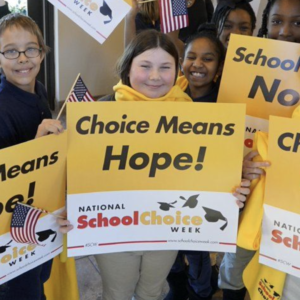More than 1,600 New Hampshire students have signed up for the Education Freedom Accounts, far exceeding initial estimates for the school choice program. More than half are from low-income families.
Drew Cline, president of the free-market Josiah Bartlett Center and a champion of EFAs, said the original projections were done before COVID-19 lockdowns and remote learning.
“As good as New Hampshire schools are, there’s a segment of the population that wants an alternative. And that segment is larger in the fall of 2021 than it was in the fall of 2019,” Cline said.
Even so, EFA students represent fewer than 1 percent of the nearly 190,000 public school students in the state.
Parents grew frustrated with their choices in the last year and have been eager for change, he said. This is especially true for lower-income families with fewer educational or occupational options.
The program is limited to families with household incomes of up to 300 percent of the poverty index. The money can be used for tuition at the school of their choice, as well as tutoring, online learning, and other education expenses
According to New Hampshire Department of Education Commissioner Frank Edelblut, among the 1,635 current participants, 88 of those enrolled are special education students and 81 are English Language Learners. Another 879 — more than 50 percent of the participants — are eligible for free and reduced lunches.
“This is a true milestone for New Hampshire, especially since the pandemic created a clear demand for new and expansive educational options,” Edelblut said in a statement. “Education Freedom Accounts provide families with the flexibility to thrive while using customized learning, tutoring services, career schools, technical schools, homeschooling, and non-public and private schools to enhance and personalize academic experiences.”
Edelblut unveiled the numbers this week at the Statehouse, sparking a negative reaction from House Democrats, who universally opposed the program. Critics complain the number of participants is far higher than originally projected, and they say the funding impact will be significant.
State Rep. Kat McGhee (D-Hollis) said on Twitter the numbers Edelblut presented, according to a Concord Monitor story she retweeted, are reason enough for him to lose his job.
“$8 million in school voucher funds sent to 1,635 NH students this month, millions out the door, no academic oversight, you pick up the difference in property taxes. I guess that’s why they skirted the House/Senate process to pass it. Edelblut has got to go,” McGhee tweeted.
While it’s true that more than $ 8 million in state funding will follow students to the schools of their choice, local property taxpayers will be the winners in the EFA program. Because the students only take the state share of funding, the local share –usually around 70 percent of the total — stays with the school. They keep most of the money but have fewer students to serve, so the per-pupil funding increases when students leave — a fact critics of the EFA program rarely mention.
The state spends on average about $20,000 per pupil in public schools, with the EFA program sending up to $4,600 directly to the families so they can choose the education they want.
“Taxpayers are educating these kids for 25 percent of what they would otherwise be educating them in a public school,” Cline said.
McGhee did not respond to a request for comment.
Manchester has the largest number of families enrolled with 166 students receiving the EFAs, followed by Nashua with 64 students. Rochester and Laconia each have 52 students, and Concord has 46.
The program is allowing families who need financial help to get their children into the schools they want, according to Kate Baker Demers, executive director of Children’s Scholarship Fund New Hampshire, the charity organization that is administering accounts for this school year.
“New Hampshire families in need are grateful and relieved that the state legislature enacted Education Freedom Accounts for low and moderate-income children, and sincerely thank NHDOE for the innovation and responsiveness it has shown in implementing the new program in record time,” Demers said.
Both Cline and Edelblut point to academic studies showing that public and private school students have better educational outcomes when competition is introduced.
“Something is happening in these traditional public schools when school choice programs start to offer real competition,” Cline said. “They are responding to that competition.”
A recent study, titled “Effects of Scaling Up Private School Choice Programs on Public School Students,” found low-income students particularly experienced better education outcomes in districts with school choice.
“These benefits include higher standardized test scores and lower absenteeism and suspension rates. Effects are particularly pronounced for lower-income students, but results are positive for more affluent students as well,” the study states.
Edleblut said there are dozens of studies showing school choice improves education across the board.
“Why would we not want to enact a policy that continues to improve our strong schools?” Edelblut asked.




